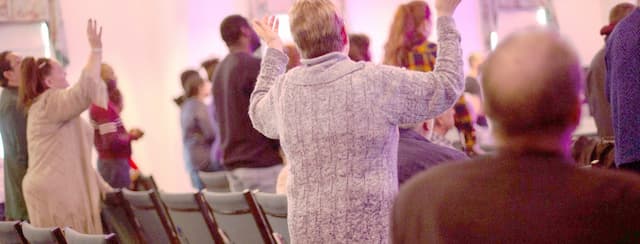Can the nations take over God’s reign? (Genesis 11)
Give people power, and they will see how far they can take it. Noah abused the power God gave him—instituting slavery. God gave them the authority to take the life of a murderer, and Nimrod twisted that power into war—the seed of empires. YHWH did not stop slavery. Nor did he stop war.
So how far can people go? Will YHWH let them take authority over everything and rule the earth in his place? That’s what humans attempt next.
Genesis 11:4 (ESV)
Then they said, “Come, let us build ourselves a city and a tower with its top in the heavens, and let us make a name for ourselves, lest we be dispersed over the face of the whole earth.”
We know this story as the Tower of Babel, but the city has the focus in the Biblical story. A city is an administrative centre. Humans proposed banding together, combining all their power into one central administration from which they can control the affairs of the whole earth. This would give them much more power than if they broke up into separate groups spread across the face of the earth.
The goal of their project was twofold:
- fame: to make a name for themselves, so everyone recognizes their power.
- centralized authority: so humanity is not dispersed over the face of the whole earth.
Such a city would have god-like power. They realize they need a symbol that communicates that message to everyone—a tower that touches the heavens.
How does YHWH respond? Does he allow them to proceed as he did with slavery and war? Or does he intervene to block them grasping his power as ruler of the earth? This is a step too far. In line with the covenant he made to never give up reigning over the earth, he blocks their attempt to grasp rulership of the whole world.
As he did with the original rebellion, with Cain’s murder of his brother, and with the cleansing of the corrupted world, YHWH stepped in to examine what humans were doing (11:5). He judges that if he permits them to take his kingly authority as ruler over humanity, there is no limit to how they will use (and misuse) that god-like power. He has allowed them to act as gods ruling regions; he will not allow them to act as God ruling the earth.
YHWH’s judgement is consistent with his covenant commitment to always rule, no matter how evil people became. His judgement is effective: he divides humanity into language groups, limiting their reach. They cease their attempts to build one central city from which to rule the whole earth (9:8).
It is then that the narrator drops the name of the city they were building. As was clear in 10:10, Babel is Babylon, Israel’s arch-enemy, the city that eventually destroyed Jerusalem. They cut off the Davidic kingship, the earthly representatives of the heavenly sovereign. They destroyed YHWH’s palace, the temple in Jerusalem. Jewish people struggled to understand how YHWH could allow the Babylonian monster to relentlessly draw the nations into its net. Would YHWH permit them to “mercilessly kill nations forever?” (Hab 1:14).
YHWH has conceded to the nations the power to rule, and people continue to grasp at more and more power to banish God and take over his world. He confuses their attempts. Babel does not have the last word. Despite all the struggles of history and the attempts of the humanity to play God, the earth belongs to YHWH.
What others are saying
Gordon J. Wenham, Genesis 1–15, vol. 1, Word Biblical Commentary (Dallas: Word, 1998), 242–245:
Mankind is seen organizing and arrogating to himself essentially divine prerogatives.
As elsewhere in Gen 1–11, there is in this narrative a strong polemic against the mythic theology of the ancient world. … But Gen 11 throws discretion to the winds: the assault on Babylonian pretensions is open and undisguised. The tower of Babylon stands as a monument to man’s impotence before his creator …
Far from being the last word in human culture, it is the ultimate symbol of man’s failure when he attempts to go it alone in defiance of his creator.
Read Genesis 11.
[previous]
[next]
Seeking to understand Jesus in the terms he chose to describe himself: son of man (his identity), and kingdom of God (his mission). Riverview College Dean
View all posts by Allen Browne





